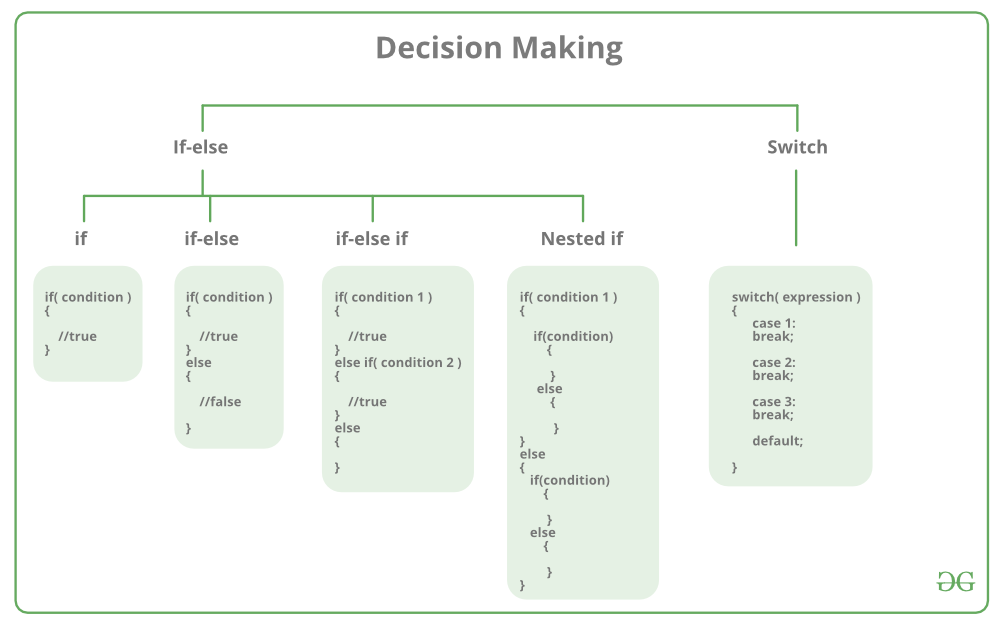A pointer is a variable that stores the address another variable.
j is a pointer
j points to i.
The "address of" (&) operator
The address of operator is used to obtain the address of a given variable
If you refer to the diagrams above
&i=> 87994
&j=>87998
Format specifier for printing pointer address is ‘%u’
The "value of address" operator (*)
The value at address or * operator is used to obtain the value present at a given memory address. It is denoted by *
*(&i) = 72
*(&j) = 87994
How to declare a pointer?
A pointer is declared using the following syntax,
int *j; => declare a variable j of type int-pointer
j=&i =>store address of i in j
Just like pointer type integer, we also have pointers to char, float, etc.
int *ch_ptr; -> pointer to integer
char *ch_ptr; -> pointer to character
float *ch_ptr -> pointer to float
Although it's a good practice to use meaningful variable names, we should be very careful while reading & working on programs from fellow programmers.
A Program to demonstrate Pointers:
Output:
Add i=87994
Add i=87994
Add j=87998
Value i=8
Value i=8
Value i=8
This program sums it all. If you understand it, you have got the idea of pointers.
Pointers to a pointer:
Just like j is pointing to i or storing the address of i, we can have another variable k which can store the address of j. What will be the type of k?
int **k;
k= &j;
We can even go further one level and create a variable l of type int*** to store the address of k. We mostly use int* and int** sometimes in real-world programs.
Types of function calls
Based on the way we pass arguments to the function, functions calls are of two types.
- Call by value -> sending the values of arguments
- Call by reference -> sending the address of arguments
Call by value:
Here the values of the arguments are passed to the function. Consider this example:
int c = sum( 3 , 4 ); => Assume x=3 and y=4
If sum is defined as sum(int a, int b), the values 3 and 4 are copied to a and b. Now even if we change a and b, nothing happens to the variables x and y.
This is call by value.
In C we usually make a call by value.
Call by reference:
Here the address of the variable is passed to the function as arguments.
Now since the addresses are passed to the function, the function can now modify the value of a variable in calling function using * and & operators. Example:
This function is capable of swapping the values passed to it. If a=3 and b=4 before a call to swap(a,b), a=4 and b=3 after calling swap.
int main()
{
int a=3; // a is 3 and b is 4
int b=4;
swap(a,b)
return 0; // now a is 4 and b is 3
}
Programs for Practice
- Write a program to print the address of a variable. Use this address to get the value of this variable.
- Write a program having a variable i. Print the address of i. Pass this variable to a function and print its address. Are these addresses same? Why?
- Write a program to change the value of a variable to ten times its current value. Write a function and pass the value by reference.
- Write a program using a function that calculates the sum and average of two numbers. Use pointers and print the values of sum and average in main().
- Write a program to print the value of a variable i by using "pointer to pointer" type of variable.
- Try problem 3 using call by value and verify that it doesn’t change the value of the said variable.

No comments:
Post a Comment